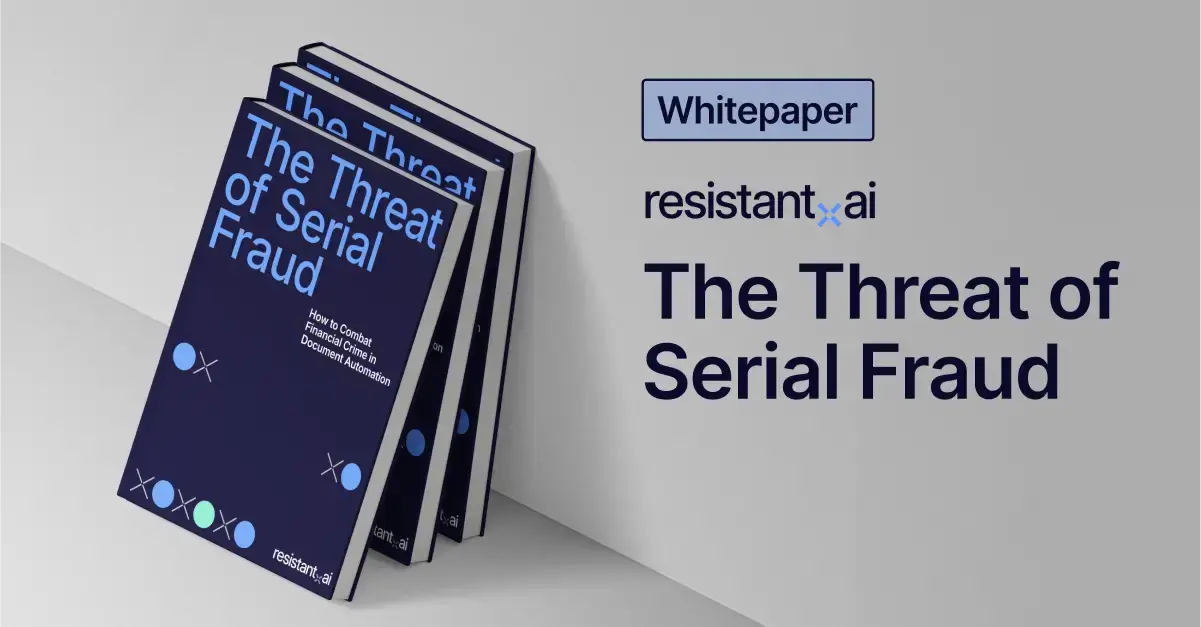Resistant AI awarded Digital Crime Fighter of the Year for second time in hackathon at ACAMS 21st annual conference in Las Vegas

LAS VEGAS and PRAGUE—Resistant AI, the fraud and financial crime services provider dedicated to protecting and safeguarding automated financial services, today announces it was awarded the title Digital Crime Fighter of the Year for winning the second hackathon challenge at the ACAMS 21st Annual AML & Anti-Financial Crime Conference in Las Vegas last week. This win swiftly follows their award of Digital Crime Fighter of the Year at ACAMS’ inaugural hackathon in March this year.
To take part in the hackathon, sponsored by PwC, participants were given five days to uncover evidence of sanctions evasion, one of the key themes of the conference and a topic of high geopolitical importance. Resistant AI’s approach to financial crime detection was recognized for its success a second time at the ACAMS event, demonstrating a real endorsement of the resources and approach utilized by the team.
Resistant AI’s team of data scientists, mathematicians, and researchers joined with their strategic partner ComplyAdvantage to compete against nine other teams. They worked with a large and complex synthetic data set of over 1.1 million records of customer data; approximately two hundred thousand cash transactions across wires, credit card, and ATM activity; cryptocurrency operations; as well as information on persons and organizations subject to sanctions.
Resistant AI used their data-driven anomaly detection technology that incorporates a number of AI/ML detectors in an ensemble approach specifically designed to discover new types of evasive criminal behavior. They sifted through the data to discover links between entities, where multiple transactions had been made to hide identities, evidence of companies registered in alternative locations to appear less suspicious, or sending money through intermediary individuals or companies.
As part of the competition, Resistant AI’s team made the final shortlist of two teams, which then presented their findings to a panel of senior anti-money laundering (AML) experts and leading industry figures. The winning team was allocated a charitable donation, which Resistant AI have given to the UNICEF Ukraine fund.
Martin Rehak, CEO and founder of Resistant AI says, "We believe the key to our team’s success was their data-driven approach, analyzing the hidden relationships between identities and transactions and enabling them to discover the financial activities that broke sanctions. We thank ACAMS and PwC for raising awareness of this area of AML, which is important now more than ever. We hope it encourages anti-fraud companies to focus more efforts on detecting the illegal breaking of sanctions."
Many organizations face challenges when using a more model-driven approach to discover deceptive financial activities or suspicious behaviors. Resistant AI’s advanced analytics solution helped the hackathon team to more accurately detect evasive behaviors and produce results that demonstrated the routes criminals take to undermine sanctions.





